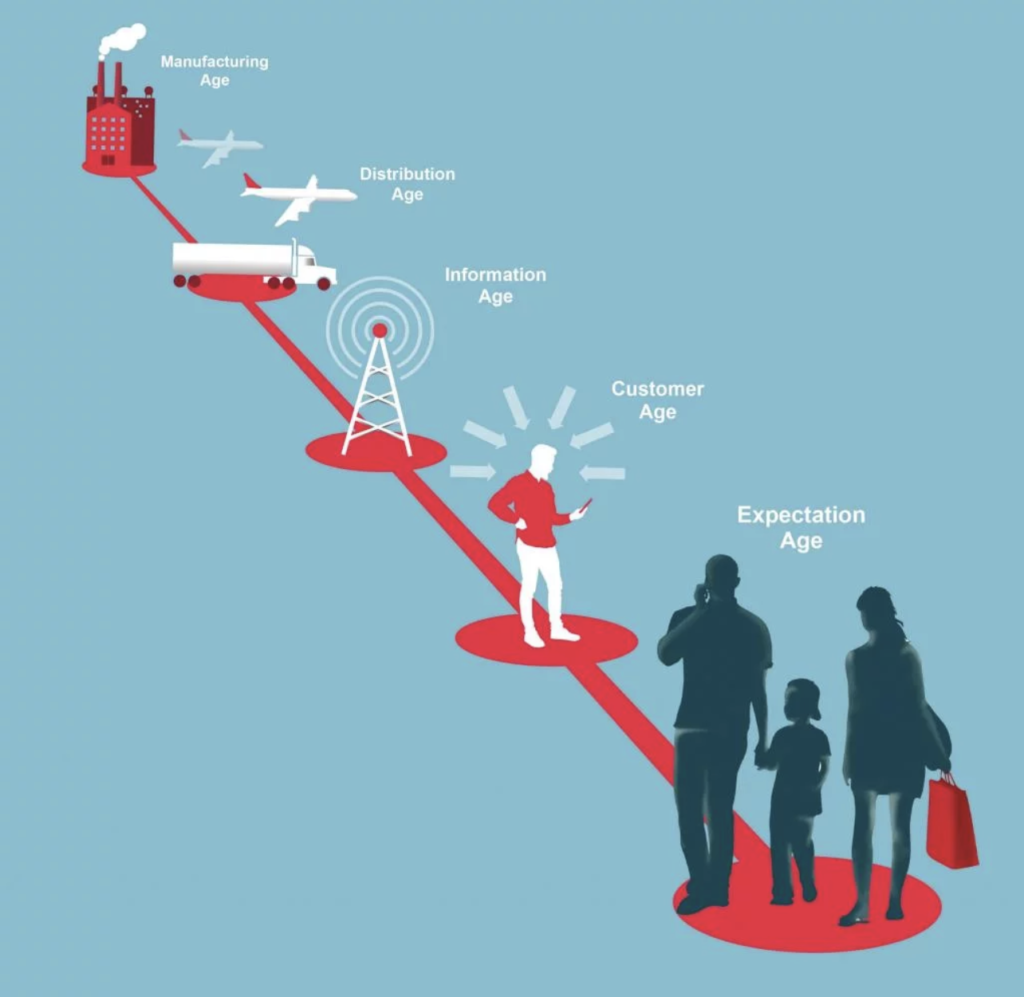How Brands Can Succeed In Today’s ‘Expectation Age’ – Ad Age

|
Getting your Trinity Audio player ready...
|
SOURCE: Andy Arnold | Ad Age
Customers expect outstanding experiences with brands at every interaction. Whether a customer is purchasing a cup of coffee or a luxury vehicle, the experience must be seamless and personalized or they will find another brand to meet their expectations. Brands are no longer simply up against their traditional competitive set, but now have “experience competition” with which to contend. Society has grown reliant on technology to make brand interactions richer and more satisfying. We can opt in or opt out, decide when and where we want to receive offers or often, unknowingly, influence the offers presented to us. If experiences don’t live up to our expectations as consumers, we’ll simply abandon the brand relationship. Empowered consumers have ushered in a new era in business. At Ansira, we call this new era the Expectation Age.
We entered the Expectation Age with innovations such as virtual reality, dynamic ads and mobile-first technology that have evolved to ensure the customer is at the center of every marketing move. To compete, brands must deliver seamless experiences at every point of the customer journey. We are no longer living in the Information Age of broadband and SMS. Technology has now made the brand-to-customer connection easier, but it has also given customers the authority to demand more from companies. How do brands address the gap between the products and services they deliver and what their customers expect?
It starts with a holistic, integrated, data-driven approach to marketing. As innovations have proliferated, we have become Sherpas for clients across all touch points by guiding them to evolve from disparate CRM and loyalty programs to have a single view of the customer; from mass media activation with a single message for all to media activation that is locally relevant and personalized; and from disconnected local partner programs to empowered channel-marketing automation. This new age demands that brands leverage data, technology and services to close the gap in the brand-to-local ecosystem. We have seen this strategy move the needle for clients, getting them more in touch with who their customers are and finding opportunities within the data to advance the company and their local partners.
Data-driven loyalty
We work with a restaurant client who was looking to improve customer engagement, increase customer spend and build brand loyalty. By embracing the data collected through martech solutions and the application of machine learning, we were able to create a program that allowed them to exceed customer expectations and become the largest loyalty program among their competitors. This was accomplished through an analytically driven marketing database and a robust CRM solution (built on top of the brand’s existing technology stack) that manages the entire customer journey and distributes rewards based on customer variables. One of the benefits of this program is that the brand is able to track more than 50 percent of their sales tied to loyalty members, giving them more data and insights to enhance their customers’ experience.
A 360-degree view
Another one of our clients, a consumer packaged goods company, needed overarching insights into how their customers were engaging across their brands, which were operating independently of each other. Our solution was to develop a strategy that included a 360-degree view of their customers and a means to activate a fully customized, relevant local experience that delivered the right message at the right time in the right channel to drive overall engagement. The client saw a 150 percent increase in cross-brand engagement and a 1,000 percent increase in customer acquisitions. Seamless experiences require assurances that every brand touch point is aligned and integrated.
Aligning spend with messaging
An auto OEM client harnessed the power of through-channel marketing automation to ensure each dollar spent in their trade promotion (co-op) program aligned with the brand’s messaging and visual identity. This alignment drove month-over-month sales increases over the past several years, making this OEM one of the hottest brands in the space.These examples illustrate that brands must embrace the power—and expectations—of their customer and make investments in order to remain a beloved brand that consumers can’t live without. By focusing on the customer experience, brands can deliver in the evolving brand-to-local ecosystem to ensure alignment at the local and national level provides the optimal consumer experience. Without this focus, brands will lose customers and the race for seamless, contextually relevant customer experiences in the Expectation Age.


